It’s early September at Segal Ranch in Grandview, Washington, and farmhands are reaping verdant rows of ripe hops. However I’m contained in the farm’s fundamental workplace, able to carry out one other vital process: tasting the salsa.
As I stand contained in the ranch’s cramped kitchen, the place proprietor John Segal Jr. is stirring refried beans on the range, workplace supervisor Delia Ramos extends a bowl of the crimson condiment. Segal and I scoop some up with tortilla chips. The salsa is heat with a low-simmering warmth. I am going again for a second chip. “It’s good for gringos,” Ramos says, smiling. The salsa is only one element to Segal Ranch’s annual harvest custom, a taco celebration.
There’s an previous saying in winemaking that it takes loads of nice beer to make nice wine. However within the brewing trade, it takes loads of nice tacos to make nice beer. Throughout harvest, Yakima Valley hop farms invite brewers to their ranches to hand-select hop varieties, treating them to tacos and tamales each bit as memorable as just-picked Citra hops.
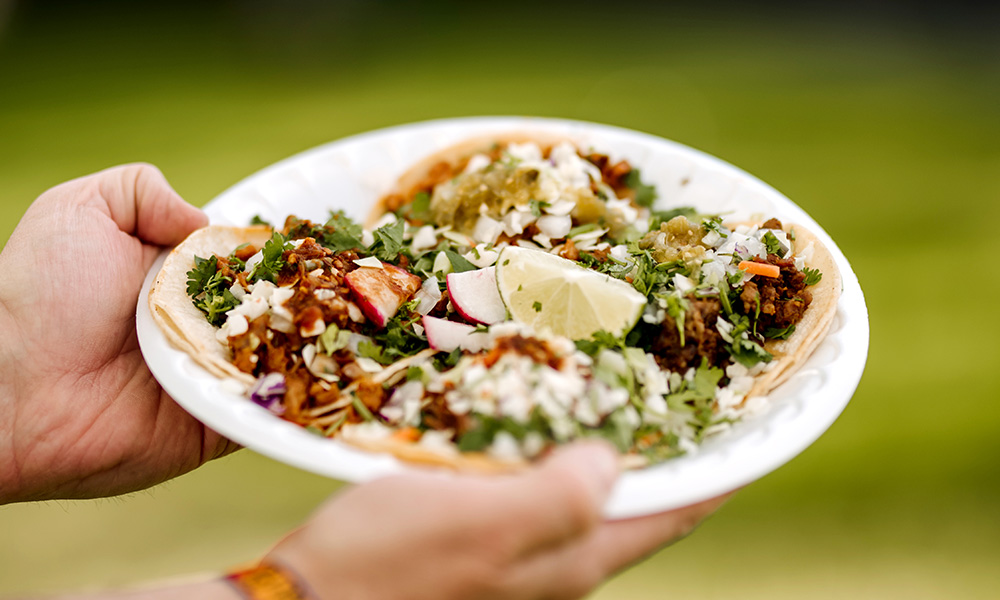
[Related on CraftBeer.com: Taco Tuesday!]
Segal Ranch began its taco celebration custom in 2010 to assist promote the story, and hop high quality, of the family-run farm. Segal invited former Lagunitas Brewing proprietor Tony Magee and Jeremy Marshall, the brewmaster, to tour the farm, choose hops, eat Mexican meals, and hearken to a mariachi band. Seeing the farm up shut, tacos in hand, turned a transaction into an enduring relationship.
Information unfold, and shortly Russian River, Allagash, Bell’s, and different breweries have been heading to Segal Ranch to combine enterprise with salsa comprised of peppers grown on the farm by supervisor Martin Ramos, who additionally grows and breeds Segal’s hops. (He’s Delia’s brother.) Immediately is the primary of the season’s 11 taco events, together with visits from Tree Home, Nice Lakes, and Firestone Walker, all of which purchase hops from Segal. An Odell Brewing contingent will arrive quickly, the tacos serving to Segal create an enduring bond wrapped in Delia’s handmade tortillas.
“I inform brewers that it’s like going to a farmers’ market in August and everybody has good tomatoes,” Segal says. “However then you definately get to know one household that grows superb tomatoes and also you need to do enterprise with them.”
The Rise of Yakima Hops
I arrive hungry and curious within the Yakima Valley, struck by the panorama’s arid expanses punctuated by lush hop fields. After grabbing a quartet of tasty tacos, together with birria and al pastor, at Javi’s Rooster and Churros in Sunnyside, I dig into historical past. The Yakima Valley was as soon as a sagebrush-covered desert panorama with round 300 days of sunshine and minimal rainfall. The primary irrigation ditch arrived in 1864, and settlers reworked the area into an agricultural powerhouse producing apples, grapes, pears, cherries, and hops. The foundational beer ingredient took root within the early 1870s, and at present the Yakima Valley accounts for some 75 % of America’s hop manufacturing.
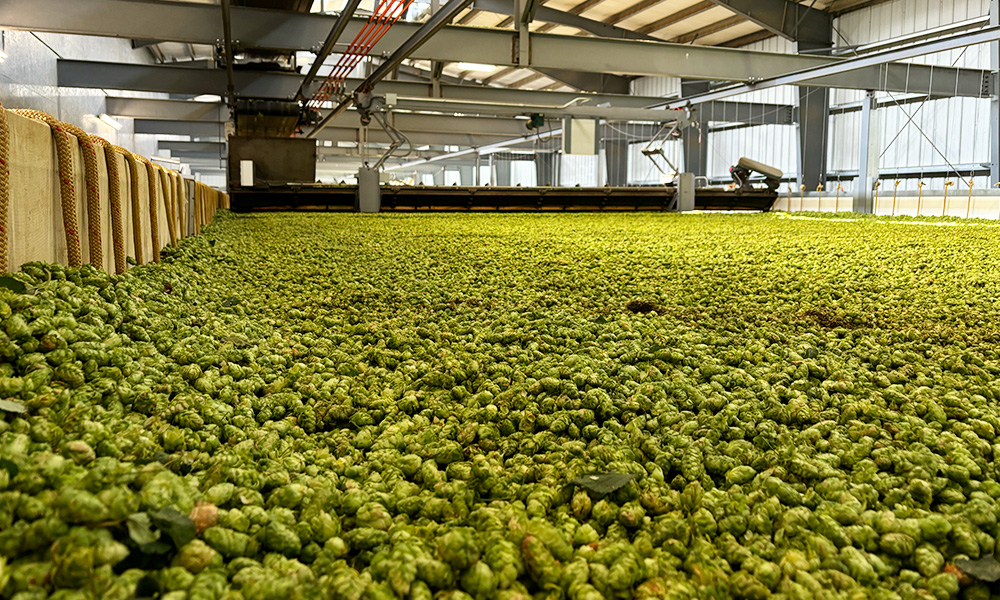
Harvest usually begins in late August, kicking off an around-the-clock rush that lasts a couple of month. Traditionally, hop farms relied on a largely Mexican migrant workforce that adopted the harvests, usually winding a route from Texas to California and Washington to select produce together with plentiful Pacific Northwest hops. (Tightening border restrictions, growing old laborers, and competing job alternatives have led to labor shortages. To shore up the ranks, hop farms rent seasonal staff, many from Mexico, who journey to America on momentary H-2A visas and return after the harvest.)
Immediately, Yakima County’s inhabitants is greater than 50 % Hispanic. With all of those migrants got here actually nice Mexican meals, and Yakima Valley now options best-in-class taco vehicles and eating places. Los Hernández Tamales, in Union Hole, Washington, received a James Beard Award for its tamales made with cactus and domestically grown asparagus.
Los Panchos, a tiny shack tucked off the primary drag in Toppenish, is a favourite of Alexandra Nowell, a cofounder and brewer on the forthcoming Mellotone Beer Challenge in Cincinnati. “The tacos have been among the finest I’ve had in my numerous journeys to Yakima,” she says. “Pollo is their specialty, they usually’re grilling it over wooden outdoors.”
I spot the sidewalk hearth once I go to, and the hen tacos are as marketed. A crunchy, textural mixture of fire-charred hen is ready on supple handmade tortillas no larger than my palm. I might devour them day by day and by no means tire of these tacos.
Beans, Meat & Beers
For each brewers and drinkers, tacos function much-needed sustenance. After downing stellar afternoon double IPAs at Varietal Beer, an IPA specialist in Sunnyside, I would like extra tacos to steadiness issues out. Co-owner and head brewer Chris Baum steers me to Tacos El Pellon II, a truck positioned in a close-by O’Reilly Auto Components car parking zone. “That’s the place I often take everyone,” he says. “The trifecta is cabeza, carnitas, and chicharrón.” I observe orders. The tacos are topped with pinto beans and crunchy slivers of iceberg lettuce, a warm-cool distinction to the crispy meat. The tacos are additionally served with a plank of cotija cheese that I nibble on as I head about 30 miles northwest to Loza Farms in Wapato, Washington.
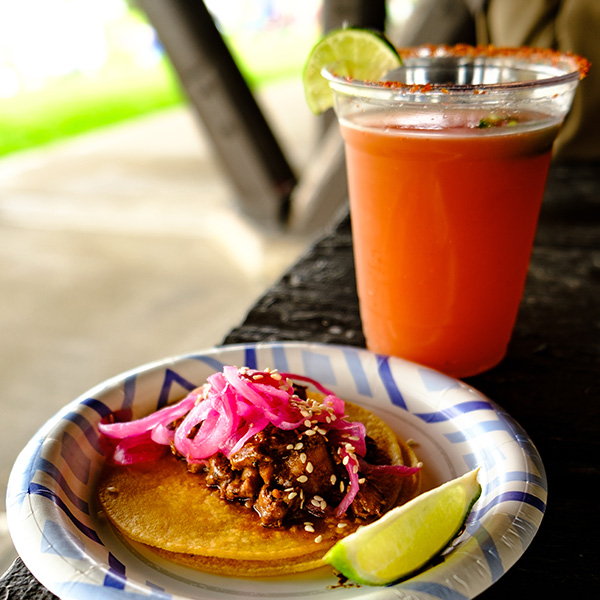
“The Mexican meals in Yakima is, bar none, among the finest Mexican meals you’ll ever have,” says farm supervisor Leon “Junior” Loza. Junior’s father first got here to the Yakima Valley from Mexico in 1976, ultimately buying a 56-acre hop farm in 2006. Loza Farms now encompasses 360 acres, the place America’s solely Hispanic-owned hop farm produces Comet and Citra hops utilized by breweries throughout the U.S., together with Cellarmaker and Different Half.
Junior is certainly one of 4 siblings to work the farm, and at present he’s flitting between Spanish and English on his walkie-talkie, tackling harvest hiccups whereas exhibiting me the grounds. “Proper now we’re in Amarillos,” he says, pointing to the hanging bines heading to the choosing machine that may separate cones from leaves and different vegetal matter. The equipment is a mechanical ballet, stuffed with whirring belts and conveyors delivering the plump cones to kilns to dry.
Loza’s multi-million-dollar choosing machine is an expensive, persnickety worker. Motors malfunction. Shafts break. The farm fabricates alternative elements to reduce prices and downtime. “We’re half-hour from anyplace that sells elements,” says Junior, who has labored each harvest since he was 13. (He’s now 42.) “Any manner you’ll be able to deliver down prices, it’s a greenback extra to spend some other place.” That might imply paying staff extra time, which farms are attempting to reduce, or supplying housing for staff.
The farm’s Mexican heritage attracts from Mexican craft breweries comparable to Cerveza Minerva and Morenos throughout harvest. “Seeing them right here at our farm is tremendous thrilling for us, particularly since my dad and mom have been born in Mexico,” Junior says. “It’s cool to see a product that they got here to Mexico to develop, return again to Mexico in beer.”
To have a good time, Loza Farm hosts a celebration for Mexican breweries on the town for hop choice, and breweries from as far afield as Italy and New Zealand attend, too. Tacos are served, in addition to surprises like a skilled opera singer-turned-brewer belting tunes. “It turns into a potluck of beers with meals,” he says.
Consuming on the Job Web site
Consuming beer at a hop farm just isn’t frequent. Hop farms are, firstly, agricultural operations. However wineries are positioned in vineyards. Why are breweries not headquartered at hop farms? One exception is Bale Breaker Brewing, positioned about 20 miles northeast of Loza in Yakima, the place I head subsequent for, sure, extra tacos and IPAs.
Bale Breaker’s brewery and taproom is carved from a hop discipline at Loftus Ranches, which dates to 1932. Siblings and Loftus scions Kevin Smith and Meghann Quinn, together with Meghann’s husband, Kevin Quinn, run the brewery the place their homegrown hops are celebrated within the IPAs Bottomcutter and Topcutter. They’re named after the machines that reduce hop bines from the plant’s base and the highest that’s connected to a trellis.
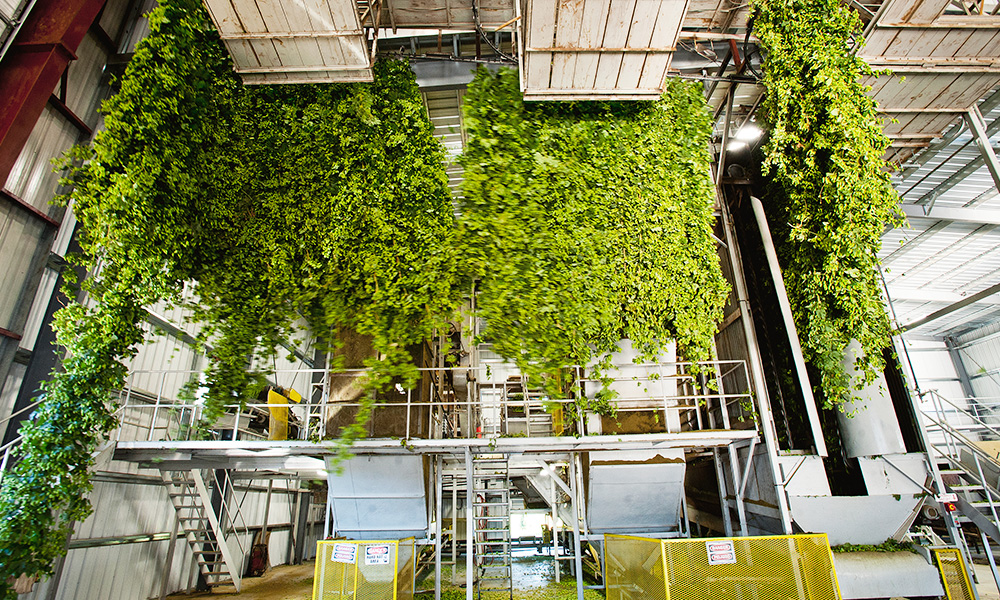
“Typically once we open our home windows within the morning, you’ll be able to inform when [we’re picking different] hop varieties,” Meghann says of the harvest.
Bale Breaker is in the course of a busy stretch of brewing fresh-hop beers, at the least a dozen, collaborations included, that may drop all through September and October. None are prepared but, however I do strive an IPA brewed with zesty, tropical Krush hops, one of many latest hop varieties.
The IPA is a superb companion to my crispy quesabirria tacos, a mixture of tender stewed beef and gentle melted cheese, from the That Man That Cooks meals truck stationed outdoors. These is perhaps my ninth or eighth tacos at present. At this level, preserving depend is futile.
Shoppers Love Tacos
Across the Yakima Valley, tacos are usually not simply ballast for ingesting your physique weight in IPAs. One morning, once I arrive at Morrier Ranch, a 500-acre Yakima farm that has grown hops since 1904, Liz Morrier McGree has a plate of tacos prepared for me at 10:45 a.m. They’re from a taco truck that arrives day by day for the ranch staff’ lunch break.
At close by CLS Farms, which oversees 2,400 acres and 27 hop varieties, together with proprietary El Dorado and the world’s largest Centennial crop, the lunch whistle sounds round 10 a.m. throughout harvest. A taco truck awaits.
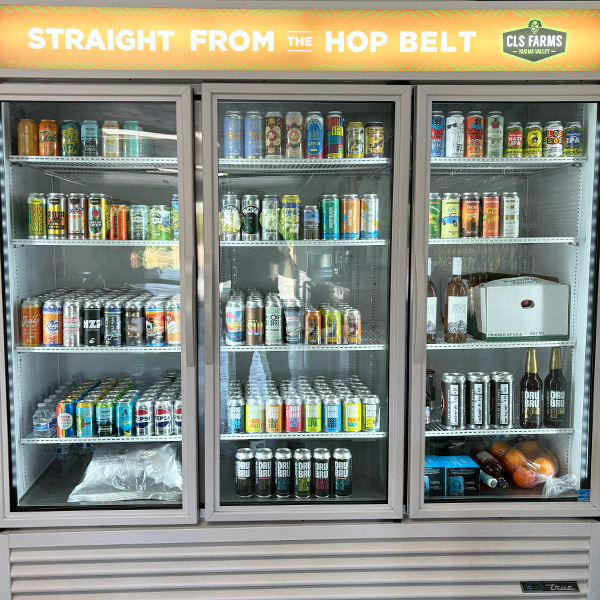
CLS has decreased acreage over the past a number of years and expanded into rising fruits comparable to apples, pears, plums, and peaches. Rising fruit retains priceless staff gainfully employed as CLS rides the hop trade’s boom-bust curler coaster. Enterprise soared when breweries wanted hops, and plenty of them, to create triple dry-hopped double IPAs. Extra is out of favor, and hop acreage nationwide shrunk from a excessive of round 61,000 acres in 2021 to 44,000 acres this 12 months, a rightsizing of manufacturing for a brewing trade decoding post-pandemic ingesting conduct.
In a troublesome brewing surroundings, inviting brewers to hop farms for tacos, beer, and enterprise can foster a deeper tie, turning a obligatory buy right into a memorable expertise that drives repeat enterprise every year. “This want for connection and understanding has been most significant to our household and farm,” mentioned Shelley Desmarais, who co-owns CLS together with her husband, Eric. CLS runs an annual harvest celebration at evening, when the clinks, clanks, and hums of hops touring by way of equipment distinction the quiet of starry darkness. “At evening there’s much less the whole lot, and it’s a particular time for folks to return to the farm,” Desmarais mentioned.
Again at Segal Ranch, farm supervisor Martin Ramos is tending the grill, searing sausages, hen, brief ribs, marinated pork riblets, and carne asada. “We do 5 completely different proteins, which I believe is an excessive amount of, however we’re locked into the custom,” John Segal says.
The BBQ is a giant manufacturing, however the payoff in rising a loyal clientele, one taco at a time, could be counted in acreage. When Segal began the custom in 2010, the household farm solely cultivated 83 acres and was at risk of closing; this 12 months, it’s cultivating greater than 400 acres of in-demand Cascade and Centennial hops, plus the burgeoning varieties Zumo, Anchovy, and Tangier. “The farm wouldn’t be the place it’s at present with out the barbecues,” Segal says. “Our farm-to-brewery method has constructed some actually good loyalty and relationships.” As has Mexican meals.
An extended desk is quickly topped with a DIY taco unfold, together with these beans, grilled meats, steaming handmade tortillas, and a ghost pepper salsa that singes my tongue. A cooler comprises Russian River’s Pliny the Elder and Stone Brewing’s Zumology IPA that stars the lime-like Zumo hop, a current addition at Segal. Containers of Centennial hops sit in Segal’s workplace, able to be rubbed, sniffed, and chosen for Odell’s flagship IPA. Enterprise can wait. There’s loads to speak about within the hops enterprise, however the tacos come first.
CraftBeer.com is totally devoted to small and impartial U.S. breweries. We’re revealed by the Brewers Affiliation, the not-for-profit commerce group devoted to selling and defending America’s small and impartial craft brewers. Tales and opinions shared on CraftBeer.com don’t suggest endorsement by or positions taken by the Brewers Affiliation or its members.



